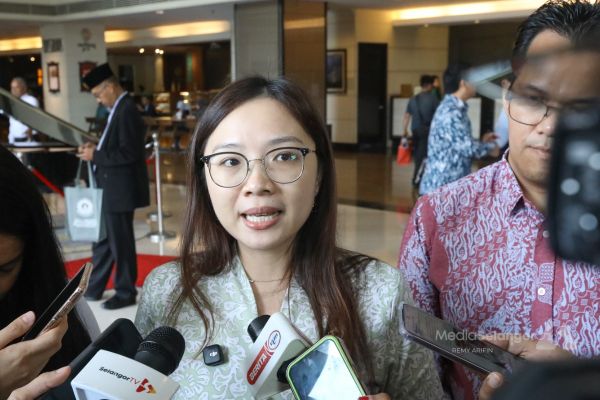By Media Selangor Team
SHAH ALAM, June 10 — The Selangor government, in partnership with the United Nations Global Compact Network for Malaysia and Brunei (UNGCMYB), has launched a capacity-building programme to help small and medium enterprises (SMEs) adopt environmental, social, and governance (ESG) practices and stay competitive in the green economy.
In an opinion piece published today on news portal Free Malaysia Today, state executive councillor for public health and environment Jamaliah Jamaluddin stated that the initiative, anchored by the Selangor Climate Adaptation Centre (SCAC), is designed to ensure that SMEs remain competitive and sustainable in the emerging green economy.
“The state government remains firmly committed to introducing initiatives that strengthen climate change mitigation efforts, while also balancing socio-economic needs with environmental sustainability, particularly for communities affected by climate-related policy shifts such as greenhouse gas emission reduction and energy transition measures.
“However, the state government will continue to support new policies that offer positive potential, such as carbon markets and energy transition strategies, given their direct impact on industrial competitiveness and state development, beyond the broader effects of climate change,’’ she said.
Jamaliah said the effort is part of a wider state-led response to climate change, as Selangor faces growing threats from rising sea levels, erratic weather patterns, and more frequent flooding.
She stated that the state is also exploring carbon market opportunities and green growth strategies to generate new revenue streams that can be reinvested into long-term climate adaptation.
The SCAC, officially launched on May 19 by Raja Muda Selangor Tengku Amir Shah, serves as a central hub for research, disaster risk analysis, and the development of science-based policies.
Jamaliah said the initiative also supports early warning systems and climate-risk monitoring for floods, water supply, and air quality across the state.
Beyond domestic measures, she said Selangor is looking to tap into international climate financing through a collaboration with the Malaysia Industry-Government Group for High Technology (MIGHT).
Under this partnership, the state will access support from the Global Environment Facility’s (GEF) eighth funding cycle for sustainable urban development.
Jamaliah said Selangor’s broader climate change policy, or DPINS, outlines the state’s commitment to a just and inclusive energy transition, climate-proof infrastructure, and equitable disaster mitigation.
Among its key priorities are the restructuring of the Selangor Climate Action Council, chaired by Menteri Besar Dato’ Seri Amirudin Shari, and the ongoing implementation of major mitigation projects, including the Raw Water Security Scheme (SJAM), which aims to secure supplies during droughts and extreme weather events.




